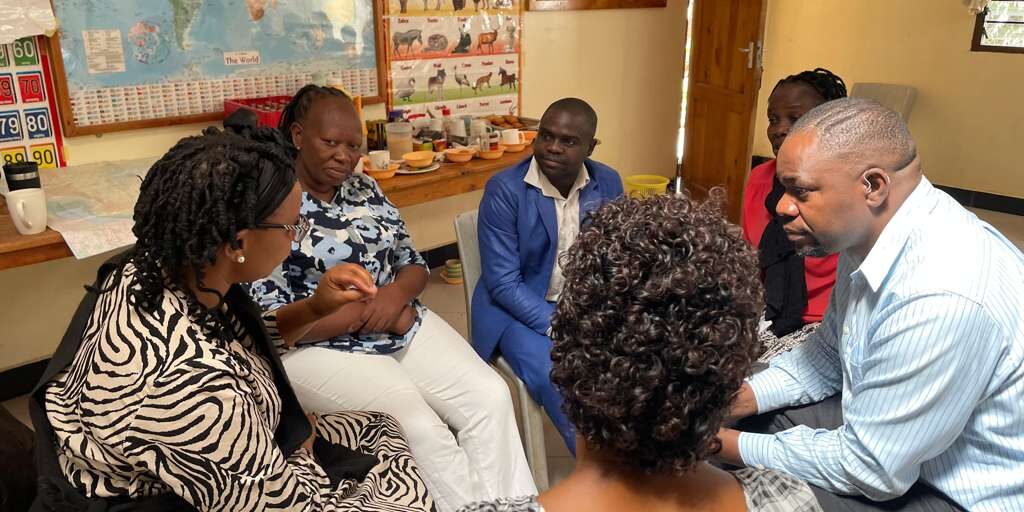Often, as we work in communities, the outcomes we measure are macro. They range from access to clean water to mother and child mortality rates, to the number of children in school, and many other quantifiable indicators.
And yet, beneath these important indicators lies a foundational unit—the family. Our families mark us and can be the source of our deepest joys or most incredible pain. In our work, we focus on family, safeguarding healthy families, family reunification, and family-strengthening practices—the family, for all its warts, is crucial in a child’s life.
We are grateful for the numerous testimonies of changes in parenting style we have seen. The prophet of old, Malachi, speaks of parents’ hearts being turned toward their children, or, as the Message paraphrase puts it, “He will convince parents to look after their children and children to look up to their parents.” One of the most concrete signs of a community growing in wellbeing is the restoration of relationships within a family. A family that communicates well, talks openly, and can laugh and cry together is a powerful catalyst for community change. This kind of family can resiliently overcome the obstacles of economic poverty and fragile political stability and still produce healthy children.
This November, we are grateful for the impact our work has. At times, these crucial, private changes are almost invisible, like yeast in the dough slowly permeating a family and its community, bringing long-lasting change from the inside out.
Mary Zulu was running a seminar in Kibera and taught on “Listening to Children”. Often called a slum, Kibera is a large urban settlement in Nairobi, Kenya. A survey conducted by the French Institute for Research in Africa found that the average Kibera slum resident lives in extreme poverty, earning less than US$2 per day. Unemployment rates are high, with 12% of the population living with HIV. Cases of assault and rape are common. There are few schools, and most people cannot afford to send their children to school. Clean water is scarce. Diseases caused by poor hygiene are prevalent. A great majority living in the slum lack access to basic services, including electricity, running water, and medical care. Yet close to a million people live here, raising their families and seeking a better life. For them, Kibera is home.
Mary said, “Most of the people here in Kibera are very stressed. They are stressed because of different things, such as poverty itself, abuse, and many other things that they go through. So when I was teaching that listening topic, the parents who came were mothers, and there were also young teenagers who had babies. And so as we talked, one of them asked the question. “Don’t you think my situation here has been caused because my parents never listened to me?”
And it was an eye-opener for them, and they said, “Yeah, if we don’t listen to our children, this is what they end up like, being like us.” And most of them said, “We don’t listen to our children. We have no time to listen to them. Even if they’ve done something wrong, I have no time to ask, “Why did you do this?” We just beat them, and say, “I have too many things on my mind to start asking why.” So during the training, they said, “This listening is something new to us. We want to try it because no one ever listens to us, so it’s a new thing for us.” And they said, “We are going to try to listen to our children because we don’t want our children to be like the way we are. The same thing that we are going through, we don’t want our children to go through that.”
Mary continued, “Typically, in Africa, people are never listened to. When you want to say something, you are told, “Shut up!” And so, your emotions are constantly suppressed. Then you grow up to be an angry person, which affects your relationships with others because sometimes, when you want to say something and they also shut you up, you get misunderstood by others.”
Mary has returned to this community and watched them wrestle with changing their practice, with learning to listen to their children and each other, and seeing hope enter their relationships.








